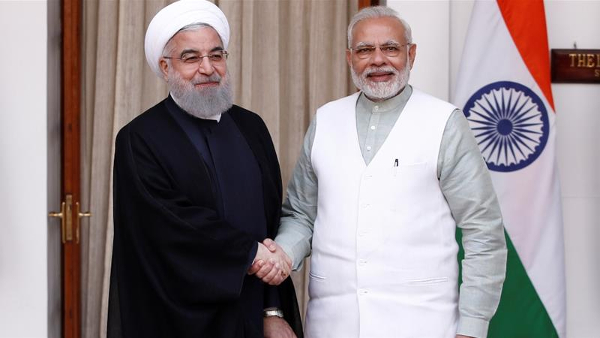Iran will soon sign a preferential tariff agreement with India that will slash tariffs on a large number of traded goods, Iranian ambassador to India Ali Chegeni said on Wednesday.
Many important items will be made zero duty as part of the deal, with a commitment to reduce tariffs on many others, he said, addressing Indian investors at the PHD Chamber of Commerce.
Till now, four rounds of negotiations have been completed and the last one was held in March in Tehran where both countries discussed a draft text of the pact. Sources said the next round will soon be held in New Delhi.
Along with the trade deal, a bilateral investment protection agreement and a double taxation avoidance agreement are also in the works and Iran is confident of signing off on all three deals by end-2019, diplomatic sources said.
Betting on trade
Bilateral trade stood at US$ 17 billion in 2018-19 with exports from India at only US$ 3.5 billion.
Apart from petroleum, major imports from Iran, include fertilisers and chemicals, while exports include cereals, tea, coffee, spices and organic chemicals.
India is the 5th largest source of imports for Iran, while being the 6th largest destination of exports. “While the majority of outbound trade from Iran continues to be crude oil and related items, non-oil exports from Iran to India rose by 18 per cent in 2018, as compared to the year before,” Economic Counsellor in the Iranian Embassy Asghar Omidi said.
While Indian exports of man-made textiles are slowly increasing, Indian companies have been unable to use market access in pharmaceuticals, according to the Federation of Indian Exports Organizations.
Tehran also remains hopeful of initiating a rupee trade mechanism with India, and later expanding it to include Russia, commerce department officials said. New Delhi had also been hopeful of using the domestic currency to pay for Iranian crude.
While experts and traders have suggested the mechanism as the best possible way to cut India’s dollar exposure as well as shore up the value of the rupee, which has continued to plummet, the recent sanctions have also put off optimism from India.
Investment tangle
Tehran continues to command the titles of the 2nd highest proven reserves of natural gas and 4th largest crude producer globally.
While Indian businesses are keen to capitalise on Iran’s 82-million market, the economic sanctions imposed by the United States that are currently in place have dampened the mood.
As a result, Iran has instead channelized Indian interest in trade and investment into the Chabahar port, which remains outside the purview of sanctions.
“The more than 600-km long railway between Chabahar port and the major city of Zahedan will open by early-2021,” Chegeni said.
Overall, Iran maintains the sanctions to be unilateral and have been assured by India that New Delhi only recognises international sanctions and not those of a single country.
Iran has also made a bid to capture Indian investments in its infrastructure expansion programme spread across rail, road and port development.
It has also called for investments in food processing and renewable energy, particularly in solar and wind energy.
Source: IBEF
Image Courtesy: PTI
You may also like
-
IAF Aircraft Set Course For Exercise Eastern Bridge VII At Oman
-
Trade Connect E-platform For Exports Is Single Window, Fast, Accessible And Transformational: Shri Piyush Goyal
-
India-us Working Together In Areas Like Critical Minerals, Supply Chains And Advanced Technologies: Shri Piyush Goyal
-
Dot Simplifies Approval Processes For Telecom Licenses And Wireless Equipment
-
Coal Production and Supply Trends on Positive Trajectory
